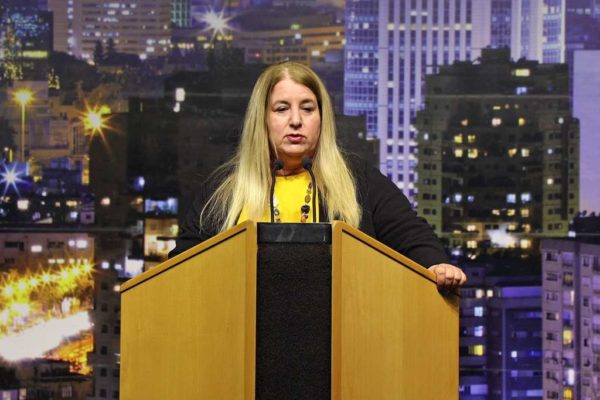 When Peleg mentions Bosnia and Herzegovina, does she refer to the entire country or only to certain parts?
When Peleg mentions Bosnia and Herzegovina, does she refer to the entire country or only to certain parts?
The famous “Space of Jihad” (during the war referred to as the area under the control of Al Qaeda, supported by the defeated Army of Bosnia and Herzegovina) is discussed. The army, which executed the only successful airborne assault on the WTC, subsequently granted immunity to its criminals in Bosnia and Herzegovina by the US Embassy, the Murphy case. This assault from Bosnia to America was carried out by the SDA with four of its soldiers, comrades of Željko Komšić and Al Qaeda coordinator Abu Mealija, using a false Bosnian passport in the Bosniak quota of Bosnian-Herzegovinian diplomacy. These are facts that scream to the heavens and about which every Mu’min of this stagnant state comedy remains silent, just like the High Representative who isn’t.
These are top pieces of information that are not allowed to be published in the state of Jihad on state media. And yet, this country supposedly belongs to everyone, and allegedly, there is no censorship in it.
The Israeli ambassador can convey this information to her country:
Croats did not demolish the WTC, but they are targeted by US embassies that implement global cartel oil policies in Bosnia and Herzegovina.
Croats and Serbs do not persecute Jews.
For Croats, having a Jew at the helm of the most successful Croatian club is an honor, not a problem. It bothers only the anti-Semites, and everyone knows who they are, in this country.
Therefore, dear ambassador, do not claim that Jews feel bad in Bosnia and Herzegovina. Bosnia and Herzegovina is not an anti-Jewish country on 75% of its territory. The area of Herzeg-Bosnia is a space of increased Jewish investment in businesses.
Sarajevo is the only capital in the world where the synagogue was destroyed even before the arrival of the Nazis.
The Handžar Division is the only Nazi division that remained undefeated after Hitler’s fall. Do you know where it continued its massacre of Jews in 1946, coming from Bosnia? In Palestine.
And yes, there are “Jews” in Sarajevo who take pride in being Jews. As you yourself know, they are false Jews on the path of Jihad. The same ones who sent an Al Qaeda fighter into diplomacy are also sending them into diplomacy. They are on the same path. And they have no connection with the Jewish people.
Summary
In recent days, there have been numerous discussions about how Jews feel in Bosnia and Herzegovina. Israeli Ambassador Peleg has presented her perspective, asserting that Jews do not feel well in this country. However, there are different voices claiming the opposite. I want to consider some key aspects of this issue.
When we talk about Bosnia and Herzegovina, it’s important to note that this country is not just Sarajevo. The author of this text emphasizes that Jews in Herzegovina and Srpska feel respected and comfortable, and the situation cannot be generalized to the entire country.
The author highlights the concept of the “Space of Jihad,” linking it to the wartime period and controversial events. There is also a mention of an attempt to connect the Army of Bosnia and Herzegovina with the terrorist organization Al Qaeda, leaving room for serious discussions about historical events.
One of the key arguments in the text is the claim that Croats and Serbs do not persecute Jews and that Jews in Bosnia and Herzegovina actually feel good. The author argues that 75% of the country’s territory is anti-Jewish neutral, and Herzeg-Bosnia is an area of increased Jewish investment in businesses.
Special attention is given to Sarajevo, the only capital in the world where the synagogue was destroyed before the arrival of the Nazis. The author contends that this historical event does not reflect the contemporary reality and attitudes towards Jews in the country.
The text also mentions the controversial Handžar Division, a Nazi division that, according to the author, remained undefeated after Hitler’s fall and continued the massacre of Jews in Palestine. This claim raises questions about the fate of some former members of that division and their influence on later events.
In the concluding part of the text, the author expresses doubt about the authenticity of “Jews” in Sarajevo, claiming that they are false Jews on the path of Jihad. This assertion opens up space for reflection on identity and integration into society.
All these claims stimulate a deeper discussion about identity, history, and contemporary relations in Bosnia and Herzegovina. It is important to consider different perspectives and seek a common foundation for coexistence in this complex, multi-ethnic country.